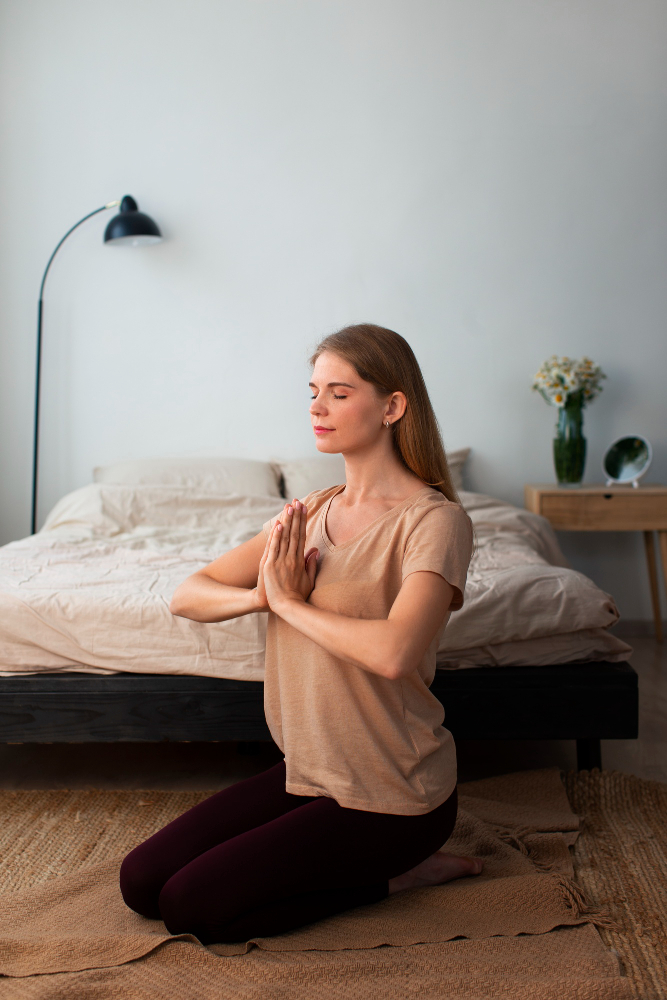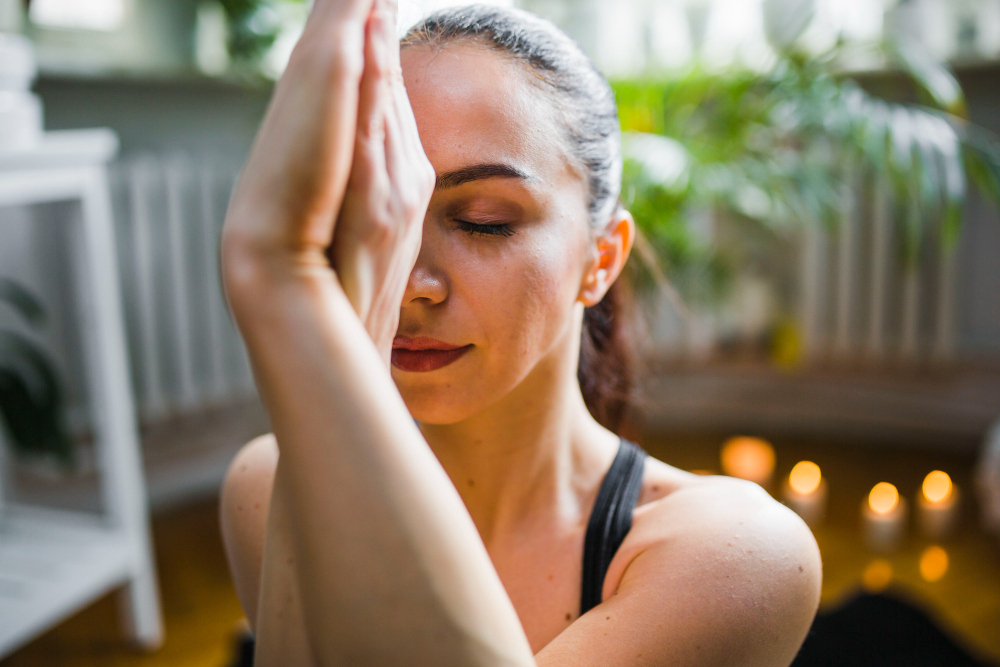Sleep Better Tonight with These Sleep Meditation Strategies

A good night’s sleep is a cornerstone in our quest for better health and well-being. It rejuvenates our body, sharpens our mind, and stabilizes our emotions. Yet, for many, quality sleep remains elusive. This is where sleep meditation can play a pivotal role.
Let’s explore effective sleep meditation techniques that promise to usher you into a realm of deep, restorative sleep before bed. Our focus will be practical, easy-to-implement strategies that can transform your nighttime routine and pave the way for a peaceful slumber.
Sleep Meditation
Sleep meditation involves a set of practices designed to calm the mind and prepare the body for sleep. It bridges the gap between wakefulness and sleep, serving as a powerful tool to combat insomnia and enhance sleep quality. Through focused attention and relaxation techniques, sleep meditation helps in winding down, making it easier to drift off into a deep sleep.
The Importance of Routine
Establishing a pre-sleep routine is crucial for signaling your brain that it’s time to wind down. Integrating sleep meditation into this routine can significantly improve its effectiveness. Start by setting aside a specific time each night for your meditation practice. Consistency is vital, as it helps reinforce your body’s sleep-wake cycle.
Creating a Conducive Environment
The environment in which you meditate plays a significant role in the quality of your sleep. Ensure your bedroom is quiet, dark, and calm. To enhance the ambiance, consider using essential oils like lavender or chamomile, which have soothing properties. A comfortable mattress and pillows are crucial in creating an ideal sleep environment.
Deep Sleep Techniques Before Bed
Now, let’s explore specific sleep meditation techniques to help you achieve a deep, rejuvenating sleep.
Mindfulness Meditation
Mindfulness meditation focuses on being present and fully engaging with the moment. As you prepare for bed, sit or lie down comfortably and focus on your breath. Notice the sensation of air entering and leaving your body. If your mind wanders, gently bring your focus back to your breathing. This practice reduces stress and promotes relaxation, making it easier to fall asleep.
Guided Imagery
Guided imagery involves visualizing a peaceful scene or story. This technique can be particularly effective for those who cannot focus on their breath alone. Many guided imagery recordings are available specifically designed for sleep. Listening to these can distract your mind from daily stresses, transporting you to a state of calm.
Progressive Muscle Relaxation
Progressive muscle relaxation (PMR) is a technique that involves tensing and then relaxing different muscle groups in the body. Start with your toes and gradually work your way up to your head. Focusing on the sensation of relaxation makes your body more relaxed, making it easier to fall asleep.
Body Scan Meditation
Body scan meditation is similar to PMR but involves passively observing sensations throughout the body without tensing the muscles. Begin at your feet and slowly move your attention up to the crown of your head. This technique helps in releasing physical tension and calming the mind.
Mantra Meditation
Mantra meditation involves repeating a calming word or phrase silently or aloud. Repeating the mantra can help clear the mind of thoughts and worries that often stand in the way of sleep. Choose a mantra that resonates with you, and let its rhythm soothe you to sleep.
Additional Tips for Enhancing Sleep Quality
In addition to sleep meditation, several lifestyle adjustments can improve sleep quality. Limiting caffeine and screen time before bed can help your mind unwind. Regular physical activity during the day can also promote better sleep at night. Lastly, ensure your daytime naps are short and avoid sleeping late to maintain a consistent sleep schedule.
Conclusion
Sleep meditation offers a gateway to deep, restorative sleep, which is crucial for our overall health and well-being. Incorporating techniques like mindfulness meditation, guided imagery, progressive muscle relaxation, body scan meditation, and mantra meditation into your nighttime routine can enhance your ability to fall asleep and enjoy a more restful night. Creating a conducive environment and maintaining a consistent routine are equally important in fostering quality sleep.
As you embark on this path to improved sleep, we encourage you to share your experiences and insights. Your feedback enriches our community and inspires others to explore sleep meditation as a solution to their sleep challenges.
Moreover, if you want to deepen your practice or explore related wellness services, we invite you to discover more through our offerings. Engage with us in the comments, share this post with those who might benefit from it, and continue supporting each other in achieving better sleep and, consequently, better health.
Read More:
Related Posts

Excel in Online Yoga Classes

Achieving Radiant Skin with The Hot Yoga Glow
About Us


